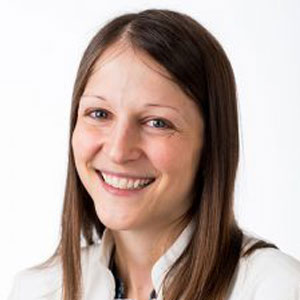Living the Call
May 31, 2017 | Alumni, Public, Spiritual Life

In this series, we asked alumni to update us on their path to ministry since graduation. They reflect on how their time at Princeton Seminary prepared them for leadership, while sharing some of the surprises and challenges they’ve experienced along the way.
Alison VanBuskirk Philip ’15 MDiv didn’t grow up going to church. She discusses her journey to becoming the solo pastor of a suburban church, and shares the seminary experiences that continue to inform her role as pastor.
Q: Tell us about yourself. How did you end up where you are now?
A: I didn’t grow up going to church. It wasn’t until college that I started exploring the Christian faith. After visiting many churches, I ended up finding a home at a Methodist campus ministry where the focus was on a God who welcomes each of us as we are and who invites us to become more ourselves—trusting that we are created in God’s image. The focus was on living out the questions as much as having all of the answers, and trusting that God walks with us.
I got very involved in this campus ministry and ended up in a leadership position, organizing trips to New Orleans after Hurricane Katrina. One time before we left for a trip, the pastor of the church asked me if I’d considered ordained ministry. But, I told him I wanted to be an English professor. That question planted a seed. Instead of going to graduate school, after I graduated college I moved to New York City to join AmeriCorps, an interfaith organization that formed after 9/11 to help with recovery efforts. I really enjoyed working in the nonprofit sector, and later moved on and worked as an editor for a Christian women’s organization. But the whole time, the seminary question echoed in my head and my heart. The question led me to Princeton Theological Seminary, which led me to my current role as pastor of a small United Methodist Church in Northern New Jersey.
“My field education experiences were so formative. Having a basic understanding of family systems theory has been a huge help as I’ve entered pastoral ministry.”
Q: What does your current role involve?
A: I’m the solo pastor of Franklin Lakes United Methodist Church in Franklin Lakes, New Jersey. I lead worship through word and sacrament, lead Bible study and other small groups, organize the church for mission, and build relationships with people inside and outside of the church walls. Our church has a particular focus on feeding ministries, including a community garden.
Q: What is one gift that you discovered in your ministry that you didn’t know you had?
A: Based on my experience in ministry so far, I’ve learned that I have more of a mind for business than I realized. I enjoy that part of congregational ministry more than I anticipated.
Q: Looking back, how do you think Princeton Seminary prepared you for the work you’re doing?
A: My field education experiences were so formative. Having a basic understanding of family systems theory has been a huge help as I’ve entered pastoral ministry. It gives me perspective and space as I relate to the people God has called me to serve.
Ideas from Darrell Guder’s missional theology class, Bo Karen Lee’s spirituality classes, and Craig Barnes’ pastoral leadership class (especially his perspective on subtext in Scripture and ministry) have stuck with me and continue to shape how I see my work as a pastor.
Q: What books are at the top of your reading list?
A: Most recently I read Pete Scazzero’s book, Emotionally Healthy Leader, which emphasizes how important it is for ministry leaders to prioritize our relationships with Jesus and attend to our spiritual growth. Some of my favorite books include Edwin Friedman’s Generation to Generation, Christopher Morse’s Not Every Spirit, and Ann Ulanov’s Finding Space.
CHECK OUT OTHER ALUMNI STORIES IN OUR “LIVING THE CALL” SERIES
- Brendan Byers ’15 MDiv
- Hayley Cohen ’16 MDiv
- Tara Porr Granados ’15 MDiv
- Joshua Noah ’15 MDiv
- Nathan Sell ’15 MDiv
- Thomas Rusert ’10 MDiv
- Claire Berry ’17 MDiv





